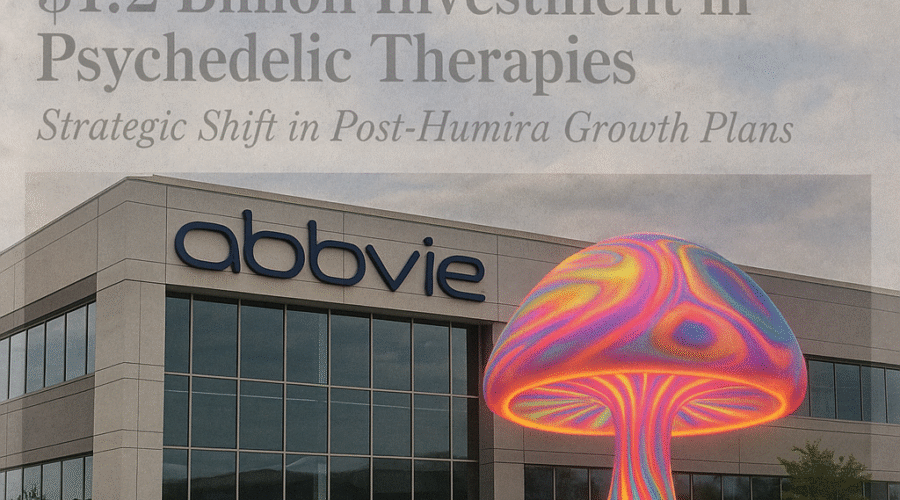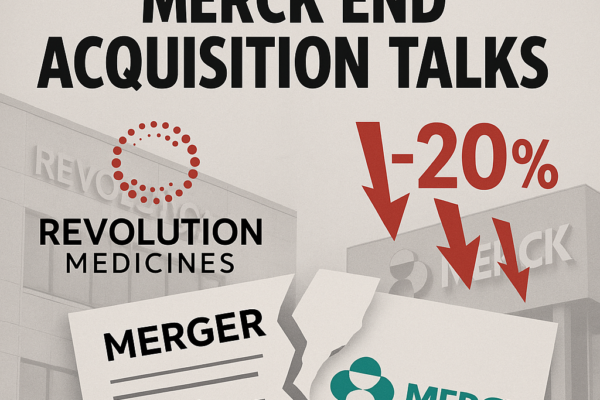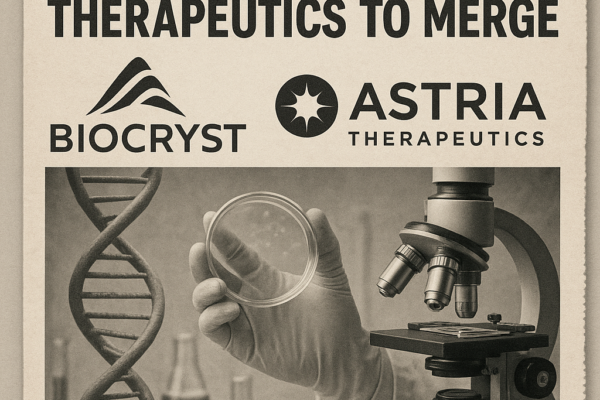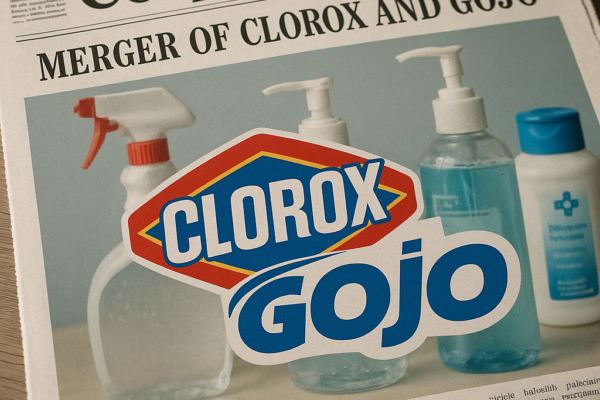AbbVie’s recent acquisition of Gilgamesh Pharmaceuticals’ psychedelic depression treatment for up to $1.2 billion represents a pivotal moment in the pharmaceutical giant’s post-Humira transformation, yet retail investors remain cautiously optimistic about the company’s expanding neuroscience pipeline. The deal, announced on August 25, 2025, brings bretisilocin—a novel psychedelic compound showing promising Phase 2a results in major depressive disorder—into AbbVie’s portfolio, marking one of the largest investments by a major pharmaceutical company in the emerging psychedelics therapeutics sector. While institutional analysts view the acquisition as strategically sound given the significant unmet need in psychiatric care and bretisilocin’s differentiated profile, retail trading sentiment reflects broader concerns about AbbVie’s recent neuroscience setbacks, including the high-profile failure of emraclidine from the $8.7 billion Cerevel acquisition, creating a complex investment narrative that balances innovation potential against execution risks in one of medicine’s most challenging therapeutic areas.
💼 M&A / PE diligence in 24 hours? Yes, thanks to AI!
Deal Architecture and Financial Structure Analysis
The AbbVie-Gilgamesh transaction represents a carefully structured asset acquisition rather than a traditional company buyout, demonstrating sophisticated deal engineering that maximizes strategic value while managing risk exposure. Under the definitive agreement, AbbVie will acquire exclusive rights to bretisilocin (GM-2505) for total consideration of up to $1.2 billion, structured as an undisclosed upfront payment combined with development milestone payments tied to clinical and regulatory achievements[1][4]. This milestone-heavy structure indicates AbbVie’s prudent approach to managing execution risk, particularly given the company’s recent experience with emraclidine’s Phase 2 failure, which resulted in a $3.5 billion impairment charge[18].
The transaction architecture includes an innovative spin-off component whereby Gilgamesh will establish a new entity, Gilgamesh Pharma Inc., to house its remaining pipeline assets, employee base, and the existing $2.15 billion collaboration agreement with AbbVie established in May 2024[3][4]. This structure allows AbbVie to acquire its primary asset of interest while enabling Gilgamesh to continue developing its broader portfolio, including the oral NMDA receptor antagonist blixeprodil (GM-1020), a cardio-safe ibogaine analog, and an M1/M4 agonist program targeting schizophrenia[4][6]. The retention of the original collaboration agreement within the new entity suggests AbbVie maintains optionality on Gilgamesh’s remaining assets, providing potential future value creation opportunities.
Financial advisors involved in the transaction reflect the deal’s strategic importance, with Centerview Partners serving as exclusive financial advisor to Gilgamesh and Ropes & Gray providing legal counsel, while AbbVie utilized Covington & Burling for legal advisory services[4]. The involvement of top-tier investment banking and legal firms underscores the transaction’s complexity and strategic significance for both parties. Industry reports suggest the final deal value exceeded initial Bloomberg estimates of approximately $1 billion, indicating competitive dynamics or enhanced valuation based on additional clinical data analysis[2][5].
From a financing perspective, the acquisition aligns with AbbVie’s broader capital allocation strategy, which has seen the company complete eight deals in 2025 with seven featuring potential economics exceeding $1 billion[2]. This aggressive deal-making pace, described by Cantor Fitzgerald analyst Carter Gould as maintaining AbbVie’s “relative torrid pace of deal-making,” reflects management’s commitment to rebuilding growth prospects following Humira’s patent cliff[2]. The transaction’s structure, emphasizing milestone-based payments rather than large upfront commitments, demonstrates financial discipline while maintaining strategic flexibility as bretisilocin advances through late-stage development.
Strategic Rationale and Pipeline Diversification Imperative
AbbVie’s acquisition of bretisilocin represents a calculated strategic response to mounting pressures in the pharmaceutical industry’s most challenging therapeutic area, where traditional approaches to treating major depressive disorder have shown limited innovation over the past decade. The decision to invest up to $1.2 billion in a psychedelic compound reflects profound shifts in psychiatric treatment paradigms, as evidenced by growing clinical validation of psychedelic-assisted therapies and increasing regulatory acceptance[2]. Dr. Roopal Thakkar, AbbVie’s Chief Scientific Officer, emphasized this strategic imperative, stating that “the field of psychiatry represents one of the most challenging areas in medicine, with a significant need for innovative solutions,” positioning the acquisition as fundamental to broadening psychiatric care through novel treatment approaches[4].
The strategic timing of this acquisition coincides with significant momentum in the psychedelics sector, as RBC Capital Markets analysts recently characterized the space as “approaching a tipping point” with larger studies nearing completion[2]. This market inflection point has been validated by recent positive clinical data from multiple companies, including Compass Pathways’ relatively large study of psilocybin in treatment-resistant depression and Reunion Neuroscience’s advancement into late-stage testing[2]. AbbVie’s entry into this space through bretisilocin acquisition positions the company to capitalize on potential first-mover advantages while leveraging its established commercial infrastructure and regulatory expertise to accelerate development timelines.
Bretisilocin’s differentiated clinical profile addresses key limitations that have hindered broader psychedelic therapeutic adoption, particularly the extended duration of psychoactive experiences associated with traditional compounds like psilocybin and LSD. As a novel 5-HT2A receptor agonist and 5-HT releaser, bretisilocin maintains the rapid, robust, and durable antidepressant effects characteristic of psychedelic compounds while demonstrating a significantly shorter duration of psychoactive experience[4][6]. This profile potentially enables integration into existing clinical frameworks, similar to Johnson & Johnson’s two-hour in-clinic model established for ketamine-based Spravato, creating practical advantages for healthcare delivery and patient acceptance[5].
The acquisition strengthens AbbVie’s neuroscience portfolio at a critical juncture, building upon existing assets including the antipsychotic Vraylar, migraine treatments Ubrelvy and Qulipta, and the therapeutic applications of Botox[13]. AbbVie’s neuroscience revenues reached approximately $5 billion in the first half of 2025, representing 20.3% growth driven by these established products[13]. The addition of bretisilocin, pending successful late-stage development, could potentially add billions in peak annual revenue given the substantial market opportunity in major depressive disorder, which affects over 21 million adults in the United States according to National Institute of Mental Health estimates.
Clinical Validation and Competitive Positioning
The clinical foundation supporting AbbVie’s bretisilocin investment rests on compelling Phase 2a trial results that demonstrated both statistical significance and clinically meaningful improvements in patients with moderate-to-severe major depressive disorder. In the pivotal study, a single 10mg dose of bretisilocin achieved a remarkable -21.6 point reduction from baseline on the Montgomery-Åsberg Depression Rating Scale (MADRS) compared to a -12.1 point reduction for the 1mg low-dose active comparator at Day 14, representing a statistically significant difference (p=0.003)[4][6]. These results exceeded typical benchmarks for antidepressant efficacy, with the 94% remission rate observed in the study positioning bretisilocin among the most promising depression treatments in clinical development[5].
The study design and safety profile further distinguish bretisilocin from competing approaches in the psychedelic therapeutics landscape. The trial enrolled 40 patients who received two doses approximately two weeks apart, with evaluation conducted almost one month after the initial dose, demonstrating sustained therapeutic benefit beyond the immediate treatment period[5]. Critically, bretisilocin was well-tolerated with no serious adverse events reported, addressing safety concerns that have hindered broader psychedelic therapeutic acceptance[4][6]. The shorter half-life compared to traditional psychedelics represents a significant competitive advantage, potentially enabling outpatient treatment protocols that could dramatically expand market accessibility.
Bretisilocin’s mechanism of action as both a 5-HT2A receptor agonist and 5-HT releaser differentiates it from existing depression treatments and positions it favorably against emerging psychedelic competitors. While companies like Compass Pathways focus on psilocybin formulations and Reunion Neuroscience develops compounds that boost brain proteins interacting with psychedelics, Gilgamesh’s approach represents next-generation psychedelic engineering designed to optimize therapeutic benefit while minimizing challenging psychoactive experiences[2][3]. This neuroplastogen approach, targeting mechanisms that provide clinical benefits while reducing traditional psychedelic side effects, aligns with broader industry trends toward more patient-friendly psychedelic therapeutics.
The competitive landscape validation for psychedelic investments has intensified significantly, with AbbVie joining a select group of major pharmaceutical companies making substantial commitments to the sector. The timing of AbbVie’s move follows closely after FDA advisory committee discussions regarding Lykos Therapeutics’ MDMA-assisted therapy for post-traumatic stress disorder, representing the first formal FDA expert debate on psychedelic treatments[3].
Sources
https://www.statnews.com/2025/08/25/abbvie-gilgamesh-psychedelics-depression/, https://www.biopharmadive.com/news/abbvie-gilgamesh-psychedelic-drug-asset-deal-acquisition/758522/, https://www.fiercebiotech.com/biotech/abbvie-joins-psychedelic-push-inks-2b-next-gen-neuro-deal-gilgamesh, https://www.prnewswire.com/news-releases/abbvie-to-acquire-gilgamesh-pharmaceuticals-bretisilocin-a-novel-investigational-therapy-for-major-depressive-disorder-expanding-psychiatry-pipeline-302537266.html, https://www.fiercebiotech.com/biotech/abbvie-tunes-gilgameshs-story-inking-12b-deal-psychedelic-program, https://www.genengnews.com/topics/drug-discovery/abbvie-embraces-psychedelic-drug-with-up-to-1-2b-deal-for-gilgameshs-mdd-candidate/, https://www.ainvest.com/news/stock-analysis-abbvie-outlook-mixed-signals-optimistic-analysts-strong-fund-flows-2508/, https://simplywall.st/stocks/us/pharmaceuticals-biotech/nyse-abbv/abbvie/news/what-do-abbvies-gains-in-2025-mean-after-promising-alzheimer, https://stocktwits.com/news-articles/markets/equity/abb-vie-retail-traders-remain-wary-amid-report-of-1-b-gilgamesh-deal-to-boost-mental-health-pipeline/chohM5uR5CF, https://www.ainvest.com/news/abbvie-stock-falls-0-06-1-26b-trading-volume-surges-37-85-rank-51st-daily-activity-2508/, https://inshorts.com/en/news/abbvie-eyes--1-bn-gilgamesh-deal--retail-traders-remain-wary-1753941456294, https://www.ainvest.com/news/abbvie-surges-0-3-earnings-acquisition-hopes-1-2b-volume-hits-top-500-rank-2508/, https://www.nasdaq.com/articles/abbv-buys-rights-bretisilocin-novel-psychedelic-depression, https://stocktwits.com/news-articles/markets/equity/abbvie-to-acquire-gilgamesh-lead-candidate-for-up-to-1.2-billion/chssYI7Rd1u, https://www.biopharmadive.com/news/abbvie-emraclidine-failure-schizophrenia-bristol-myers-cobenfy/732534/, https://www.statnews.com/2024/11/12/abbvie-neuroscience-big-bet-setback-new-opportunities/, https://www.labiotech.eu/in-depth/abbvie-beyond-humira/, https://www.fiercebiotech.com/biotech/abbvie-takes-35b-hit-after-emraclidines-phase-2-flop-schizophrenia, https://www.ainvest.com/news/abbvie-post-humira-strategy-navigating-patent-cliff-innovation-resilience-2506/, https://www.clinicaltrialsarena.com/news/abbvie-stock-plummets-over-12-after-schizophrenia-drug-flops-in-phase-ii-trials/





